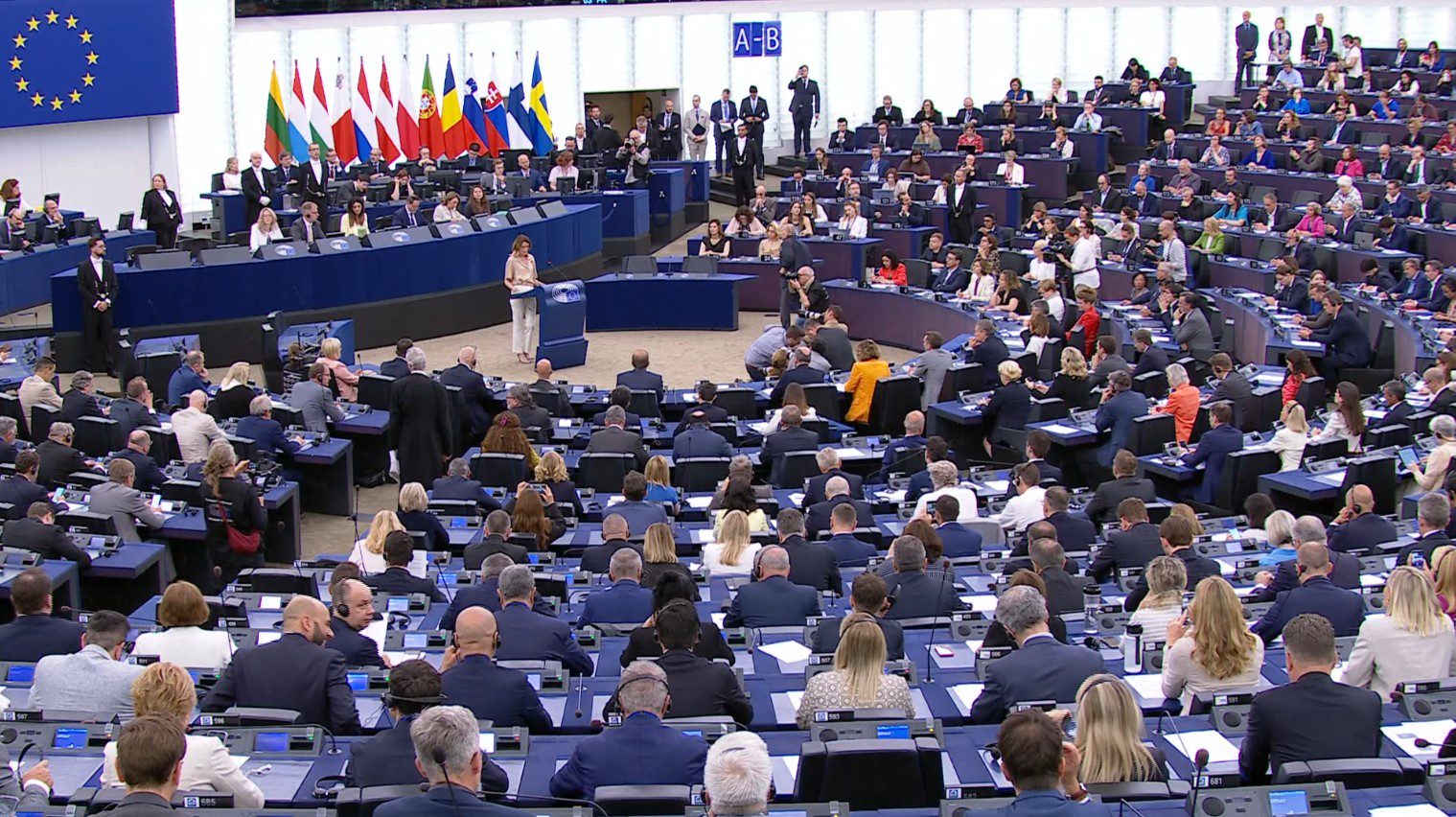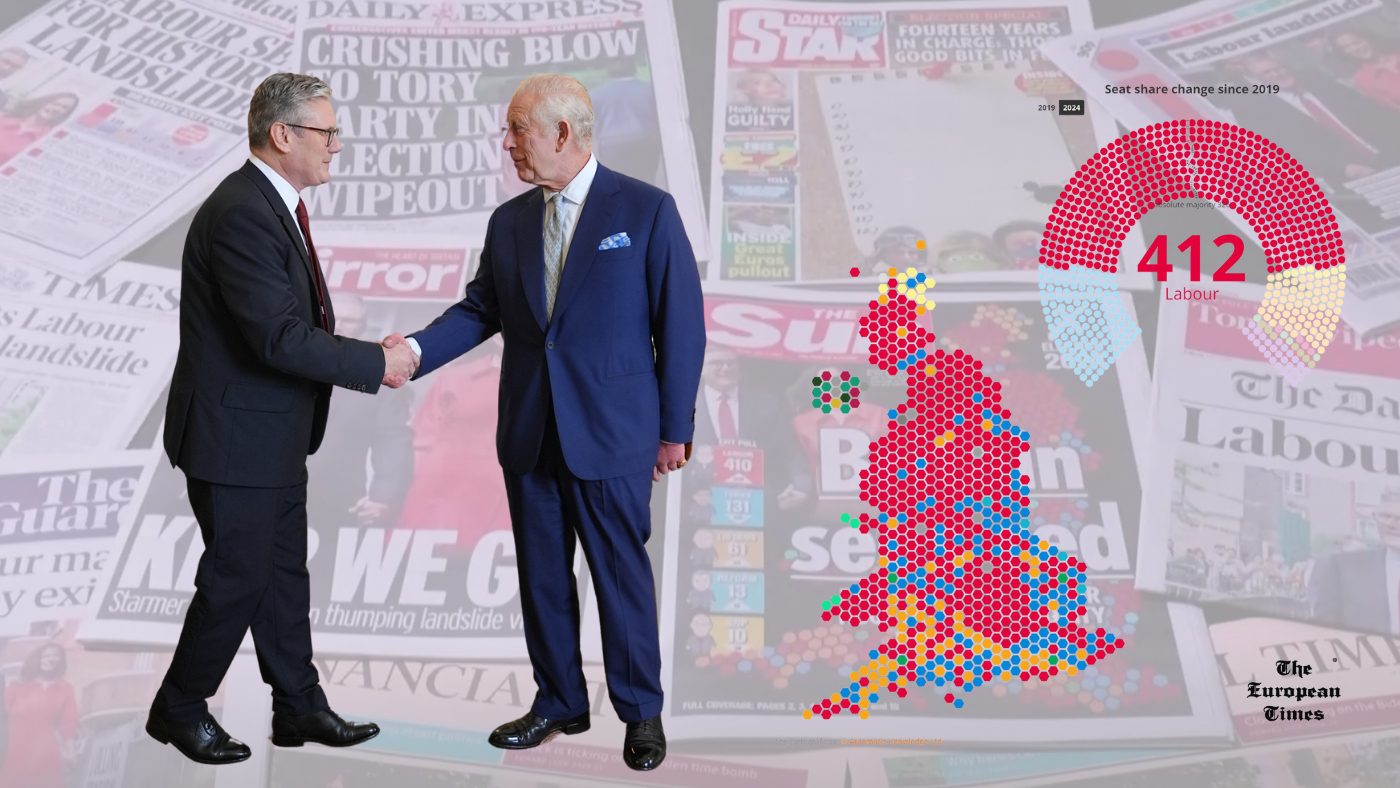Politics
Spyware: MEPs raise alarm over threat to democracy, demand reforms
The EP spyware inquiry committee adopted its final report, which included a number of recommendations. It condemned the use of spyware in several EU countries and outlined a path forward.
The European Parliament’s Committee of Inquiry, which investigated the use of Pegasus or equivalent surveillance software (PEGA), adopted its final report on Monday evening. This follows a year long investigation into the abuse of spying software in the EU. MEPs condemn the use of spyware to intimidate political opponents, silence critical media, and manipulate elections. They say that EU governance structures are not equipped to deal with such attacks effectively and reforms are required.
Problems systemic in Poland and Hungary
MEPs have condemned major violations of EU laws in Poland and Hungary where the governments have dismantled their independent oversight mechanisms. MEPs in Hungary argue that the use spyware was “part of a calculated, strategic campaign by the government to destroy freedom of media and freedom of speech.” In Poland, Pegasus was used as part of a “system for the surveillance and monitoring of the opposition and critical of the government” to keep the ruling minority and government in power.
MEPs urge Hungary and Poland, to remedy the situation and restore judicial autonomy and oversight bodies. They should also ensure independent judicial authorization before the deployment and judicial review after, launch credible investigations into abuse and ensure citizens have access proper legal redress.
Concerns about spyware in Greece and Spain
MEPs in the European Parliament say that spyware is not used as part of a comprehensive authoritarian strategy but rather as a tool for financial and political gains. Despite the fact that Greece has a “fairly robust legal framework” in principle, legislative amendments have weakened safeguards. Spyware has been used to target journalists, politicians, and businessmen, and exported into countries with a poor record on human rights.
The MEPs demand that the government “urgently restore, strengthen and implement the legal and institutional safeguards”, and repeal export licenses that do not comply with the law. EU Export Control LegislationRespect the independence of the Hellenic Authority for Communication Security and Privacy. They also note that Cyprus has played an important role as an export hub of spyware and should repeal any export licences issued by it which are not in accordance with EU legislation.
MEPs concluded that Spain has a “strong independent justice system” with adequate safeguards, but there are still some questions about the use of spyware. MEPs note that the government has already begun to address the shortcomings. They call on authorities to conduct “full, effective and fair” investigations. This is especially important in the 47 cases when it is unclear who authorized the deployment of spyware.
Abuse must be prevented by stronger regulation
MEPs believe that to stop illegal spyware practices immediately, spyware should only be used by member states where allegations of abuse of spyware have been thoroughly investigated. National legislation must also be in line both with the Venice Commission recommendations and with EU Court of Justice case law and European Court of Human Rights decision, Europol should be involved in investigations and export licenses not in compliance with export control regulations have been repealed. In a public report by December 2023, it is the responsibility of the Commission to assess whether these conditions are met.
MEPs are calling for EU rules to limit the use of spy software by law enforcement. It should only be used in exceptional circumstances and for a defined purpose, with a limited duration. They claim that data belonging to politicians, doctors, or the media, or falling under the lawyer-client privilege, should not be monitored unless there are clear signs of criminal activity. MEPs propose mandatory notification for both targeted and non-targeted individuals whose data has been accessed by someone else as part of their surveillance, independent oversight once it has occurred, meaningful legal remedies and standards for admissibility of evidence gathered using spyware.
MEPs call for a legal definition of national security being used as a basis for surveillance in order to avoid attempts to justify abuses.
EU Tech Lab boosts vulnerability research
MEPs have proposed the creation of a EU Tech Lab to help uncover illegal surveillance. This independent research institute would be able to investigate surveillance, offer legal and technological assistance, including device screening, as well as perform forensic research. They also want to see new laws that regulate the discovery, sharing and exploitation vulnerabilities.
Foreign policy dimension
MEPs want to see a thorough investigation of spyware export licenses, a stronger enforcement of EU export control rules, an EU-US strategy for spyware, discussions with Israel and other countries to establish rules regarding spyware marketing and export, and to ensure that EU development aid doesn’t support the acquisition and use spyware.
Quotes
After the vote, the Chair of the Committee Jeroen Lenaers (EPP, NL) “Our investigation has shown that spyware has been misused to violate fundamental rights and undermine democracy in several EU members states, with Poland and Hungary being two of the most blatant examples. Spyware must be used in a proportionate manner and only when authorised by a competent judiciary. Unfortunately, this is not the case for some parts of Europe. It is necessary to have a more strict EU level of scrutiny to ensure that the use of spyware is an exception and not the norm, when investigating serious crimes. We acknowledge that spyware can be a powerful tool in combating crimes such as terrorism when used in a controlled way. Our committee has developed a range of proposals for regulating the use of spyware while respecting national safety competences. Now it’s up to the Commission and the member states to do their part, and translate our recommendations into concrete laws that protect citizens’ rights.”
Rapporteur Sophie In ‘t Veld (Renew, NL) “Today the committee of inquiry has completed its work.” This does not mean the work of Parliament is done. No victim of spyware abuse has received justice. No government has been held accountable. The member states and European Commission should not rest easy because I will continue to pursue this case until justice has been done. As long as there is a lack of accountability, the unrestricted use of commercial software without proper judicial oversight threatens European democracy. Digital tools have empowered all of us in different ways, but have also made governments more powerful. “We have to close the gap.”
Next steps and the procedure
MEPs adopted two documents: a report detailing the findings of an inquiry with 30 votes for, 3 against and 4 abstentions, and a document outlining future recommendations with 30 votes for, 5 against and 2 abstentions. The full Parliament is expected to vote on the latter text during the plenary sessions starting 12 June.
Votes in Plenary c) @ Europan Parliament
Source link
Politics
European Parliament begins its 10th term

European Parliament Convenes in Strasbourg: New President to be Elected amid Growing Diversity
On a momentous Tuesday in Strasbourg, the European Parliament, following the recent European elections held on 6-9 June, officially commenced its proceedings. The session, presided over by the outgoing EP President, Roberta Metsola of the EPP from Malta, commenced with a musical interlude before Pina Picierno, the second Vice-President in the outgoing Parliament from Italy’s S&D, announced the contenders for the coveted Presidency of the Parliament.
The highly anticipated vote, conducted through a secret paper ballot, is set to occur immediately after the inaugural session. To ensure a fair process, eight MEPs, selected by lot, will oversee the election proceedings.
The distinguished candidates vying for the Presidency are Roberta Metsola representing EPP from Malta and Irene Montero from The Left in Spain. Ahead of the crucial vote, both candidates delivered succinct statements to the plenary, outlining their visions for the future of the European Parliament.
To attain victory, a candidate must secure an absolute majority of valid votes cast, which equates to 50% plus one. In the event of no clear winner in the initial round of voting, subsequent rounds may follow with the possibility of new or existing candidates being nominated under the same stipulations. If needed, a third round could ensue with the same regulations. Should no candidate emerge victorious after the third round, the two candidates with the highest votes in this round will advance to a decisive fourth and final round, with the majority winner emerging triumphant.
Upon the election of the new President, the distinguished individual will assume the leadership position and deliver a notable opening address, setting the tone for the parliamentary term ahead.
In this landmark tenth term, the European Parliament boasts 720 seats, an increase of 15 from the previous legislature. Notably, 54% of MEPs are fresh faces, marking a slight decrease from the 2019 intake of 61%, with the representation of women comprising 39%, down marginally from the 40% mark in 2019.
Among the diverse MEP cohort, Lena Schilling, a 23-year-old from Austria representing Greens/EFA, stands as the youngest member, while the seasoned Leoluca Orlando from Italy, a Green/EFA representative aged 77, holds the distinction of the oldest MEP. The average age of MEPs stands at 50, reflecting a diverse range of experiences and perspectives within the parliamentary body.
As the tenth term commences, the European Parliament encompasses eight political groups, an increase from the previous session. Additionally, 32 MEPs remain non-attached, underscoring the dynamic landscape of political affiliations within the Parliament and highlighting the vibrant tapestry of representation in the European legislative body.
Politics
For the first time in 40 years, the Olympics will not be broadcast in Russia

Not a single TV channel, streaming platform or cinema in Russia will show the competitions from the Summer Olympics in Paris, which begin on July 26, sports.ru writes. This happened for the first time in 40 years, when in 1984 the USSR boycotted the Olympics in Los Angeles.
The official explanation is that this time only 16 athletes will participate under a neutral flag, without an anthem and in “unpopular sports”. The unofficial thing is that this is a purely political decision of the Kremlin, and heads of federations call those who agreed to participate traitors, homeless people and foreign agents.
Paris Mayor on Russians at the 2024 Olympics: It would be better if they didn’t come
Anne Hidalgo condemned the International Olympic Committee’s decision regarding representatives of the aggressor country, she said already in March.
According to the official, it would be good if athletes from the terrorist country did not participate in international competitions.
“I prefer that they not come. We cannot act as if the invasion does not exist. We cannot act as if Putin is not a dictator who is threatening all of Europe today.”
At the same time, she added that such sanctions cannot be imposed against Israeli athletes, since Israel’s actions are different from Russia’s aggression.
“There can be no talk of imposing sanctions against Israel in connection with the Olympic and Paralympic Games. Because Israel is a democratic country,” the mayor told Reuters.
Photo: Social Network / korrespondent.net.
Politics
Keir Starmer Secures Historic Labour Victory, Ending 14 Years of Conservative Rule in UK

London – In a seismic shift in British politics, the Labour Party, led by Keir Starmer, has achieved a resounding victory in the UK general election, bringing an end to 14 years of Conservative governance. The results, which had been foreshadowed by months of polling, have given Labour its strongest parliamentary majority since 2001.
Labour secured an impressive 412 seats, far surpassing the 326 required for an absolute majority and more than doubling their 2019 performance. This landslide victory marks a dramatic turnaround for the party and signals a clear desire for change among the British electorate.
Upon learning of his victory in his central London constituency, Starmer declared, “The people have spoken, and they are ready for change.” This statement encapsulates the mood of a nation seemingly eager to embark on a new political chapter.

The Conservative Party, in stark contrast, suffered its worst defeat since its founding in 1834. The Tories lost at least 250 seats compared to their 2019 performance under Boris Johnson, ending up with a mere 121 seats. This historic collapse prompted the outgoing Prime Minister, Rishi Sunak, to apologize to “those Conservatives who have lost despite their dedication” while congratulating Starmer on his victory.
The election also saw significant shifts for other parties. The Liberal Democrats, led by Ed Davey, emerged as the third-largest party with 71 seats, a gain of 63 from the previous election. The Scottish National Party (SNP) experienced a dramatic decline, securing only nine seats, a loss of 38 compared to 2019. Sinn Fein, the Irish republican party, maintained its seven seats.

In a surprising development, the nationalist-populist Reform UK, led by Nigel Farage, entered Parliament with four seats, exceeding all poll predictions. The Green Party quadrupled its representation, winning four seats in total.
Starmer’s first address as Prime Minister was filled with promises of change and renewal. “We did it!” he exclaimed, emphasizing that Britons would wake up to find “a weight has finally been lifted from the shoulders of this great nation.” He stressed the urgency of rebuilding trust in politics and committed to serving all citizens, regardless of their voting preferences.
The new Prime Minister outlined his government’s priorities, including improving security on streets and borders, rebuilding infrastructure, and enhancing opportunities in education and employment. “Changing a country isn’t as easy as pressing a button,” Starmer cautioned, “We will rebuild the United Kingdom, brick by brick.”
Rishi Sunak, in his farewell speech, acknowledged the clear signal for change sent by the electorate. “I have heard your anger and disappointment. I take responsibility for these results,” he stated. Sunak announced his intention to step down as Conservative Party leader, but not immediately, allowing time for a formal process to choose his successor.
The election also marked a personal triumph for Nigel Farage, who finally won a parliamentary seat on his eighth attempt, representing Clacton-on-Sea. Farage hailed his party’s performance as “extraordinary” and vowed to fill what he sees as a “huge void in the center-right.”
In regional developments, Sinn Fein became the largest Northern Irish party in the British Parliament for the first time, maintaining its seven seats while the Democratic Unionist Party (DUP) fell to four. In Scotland, the SNP lost its dominance, dropping from 48 seats in 2019 to just 8, with Labour making significant gains. Wales saw the Conservatives lose all representation, with Labour dominating the results.
As the United Kingdom enters this new political era under Starmer’s leadership, the country faces significant challenges. The incoming government must address economic concerns, social policies, and perhaps most critically, work to restore public trust in the political system. The scale of Labour’s victory suggests a strong mandate for change, but the real test lies in translating this electoral success into effective governance in the years to come.
-

 Sports7 days ago
Sports7 days agoOfficial: Juventus announces sixth purchase
-

 Health & Society7 days ago
Health & Society7 days agoThe intoxicated society
-

 Politics5 days ago
Politics5 days agoThe Russian patriarch to Putin: You are the first truly Orthodox president
-

 Sports6 days ago
Sports6 days agoBeautiful Juve: Vlahovic and youth rout Verona. Thiago Motta first
-

 Sports6 days ago
Sports6 days agoJuventus, Vlahovic: “Now we play a different game.”
-

 Politics4 days ago
Politics4 days agoEU Intensifies Pressure: Six-Month Extension of Russia Sanctions
-

 Health & Society3 days ago
Health & Society3 days ago7 Superfoods That Will Boost Your Fitness Results
-

 EU & the World5 days ago
EU & the World5 days agoBrittany Cartwright Files for Divorce From Jax Taylor After 5 Years of Marriage








